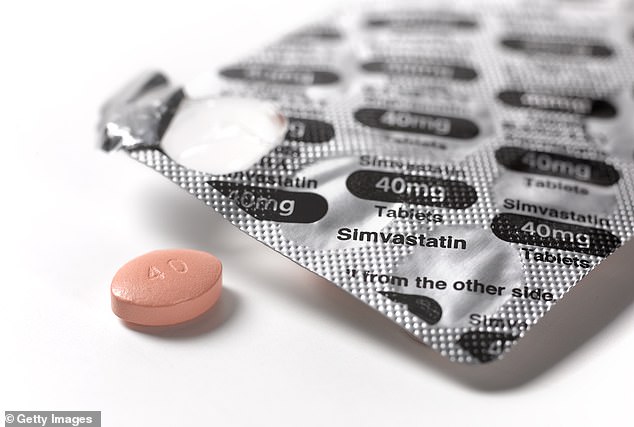Studies have found that statins significantly reduce the risk of developing more than 20 types of cancer and may also reduce deaths from heart disease.
Patients taking cholesterol-lowering drugs halve the risk of major cancers, including breast, prostate and cervical cancer.
Researchers hailed the discovery as a major advance in fighting the threat of cancer.
In the study, Chinese scholars used a British database containing up to 15 years’ worth of health information on around 400,000 patients to reach their groundbreaking conclusions.
Lipids are [fatty compound] Lipid-lowering drugs, primarily statins, may have several anti-cancer properties, such as reducing inflammation and preventing the growth of malignant cells. “We found that lipid-lowering drugs, particularly statins, were associated with a reduced risk of 21 different types of cancer,” the researchers wrote.
Studies show that statins can significantly reduce the risk of developing more than 20 types of cancer and may also reduce deaths from heart disease (stock image)
“Considering repurposing these drugs for cancer prevention may be a promising strategy.”
“Lipid-lowering drugs prevent the development of cancer, suggesting that they may have a cancer-preventive effect in the general population.”
But experts say further research is needed following the study, published in the journal iScience.
The researchers used data from the UK Biobank, which has collected health and other information on half a million people since 2006.
The research team identified 383,784 people for the study, including 114,451 new users of lipid-lowering drugs.
Men and women were followed for an average of 12.8 years for information such as cancer diagnosis and dates of lipid-lowering medication prescriptions.
Results showed that new statin users had a lower risk of leukemia, lymphoma, multiple myeloma, melanoma, and cancer of the prostate, ovary, uterus, cervix, breast, lung, liver, esophagus, stomach, intestine, colon, skin, bladder, kidney, thyroid, pancreas, and brain, with individual cancer risk reductions ranging from 38 to 66 percent.

Patients taking cholesterol-lowering drugs halve the risk of major cancers, including breast, prostate and cervical cancer (stock image)
The use of lipid-lowering drugs is also associated with a 70 percent lower risk of dying from cancer within a given period of time compared with non-users. “Lipid-lowering drugs may have a preventive effect on cancer by reducing chronic inflammation, which is an important factor in the development of many malignant tumors,” said researchers from Shandong University Hospital and other centers in China.
Around eight million UK adults take lipid-lowering drugs such as statins, which were first used in the UK in the 1980s and have revolutionised the treatment of cardiovascular disease by reducing fatty deposits in the arteries.
Previous studies on statins and individual cancers have shown mixed results, with some studies showing positive and some negative effects.
The new study was observational, and although the team found an association between statins and reduced cancer risk, it was not designed to determine whether the drugs were responsible for that reduction.
“Further research is needed. The lower risk found is independent of duration of statin use, so the association may not be causal,” said Jayant Vaidya, professor of surgery and oncology at University College London.
“Either way, the benefits to the cardiovascular system are reason enough for doctors and patients to discuss its use together.”

